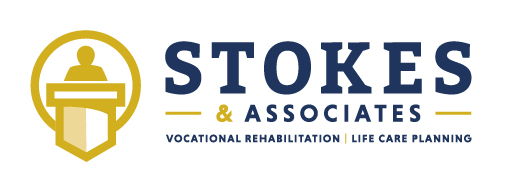Neuropsychological Evaluations in Life Care Planning
Life Care Planning for individuals with a suspected brain injury requires specific information about residual functioning, cognitive deficits, and expected course of rehabilitation to help determine future medical, cognitive, emotional, and supportive care. Physicians commonly request neuropsychological evaluations for diagnostic and treatment planning purposes, which can be crucial in preparing a Life Care Plan.
Neuropsychological evaluations are typically performed by board-certified neuropsychologists and can take many forms. It is common to see brief neurocognitive screenings done earlier in a patient's recovery to set a baseline while the individual may still be healing from neuro-insult. These quickly administered screening tools include the Mini-Mental State Exam, the Cognistat family of tests, or the Montreal Cognitive Assessment (MoCA). Allied health professionals can administer them. Due to their brief nature, it is customary to readminister these measures to chart improvement with active care.
Once an individual with a brain injury has stabilized medically, it is common to see comprehensive test batteries administered by a board-certified neuropsychologist. The typical exams include reviewing available medical records, clinical interviews with patients and family members, and psychometric tests. For example, test batteries may consist of personality measures, intelligence testing, memory testing, tests of attention and concentration, manual dexterity tests, and others. This comprehensive assessment aims to confirm organic injury's presence (or absence) and identify emotional and psycho-behavioral issues affecting functioning. Results of the neuropsychological evaluation allow the ordering physician or the neuropsychologist to recommend cognitive rehabilitation/therapy, inpatient/outpatient neurorehabilitation treatment, financial management services, case management services, household assistance, attendant care, and/or additional neuropsychological evaluation/testing.
Neuropsychological evaluations can benefit vocational rehabilitation counselors when considering whether an individual can return to work in the occupation they held at the time of their injury, work in alternate occupations, or work with or without accommodations. The information reported in a neuropsychological evaluation addresses issues related to the mental capacity to perform work-related tasks, including interacting appropriately with the public, meeting deadlines and completing assignments, maintaining attention and concentration for extended periods, and responding appropriately to changes in the work setting.
Overall, neuropsychological evaluations can provide a rich data set for diagnosing neurocognitive functioning, tracking improvement with recommended treatments, and forecasting likely future medical and vocational needs.
